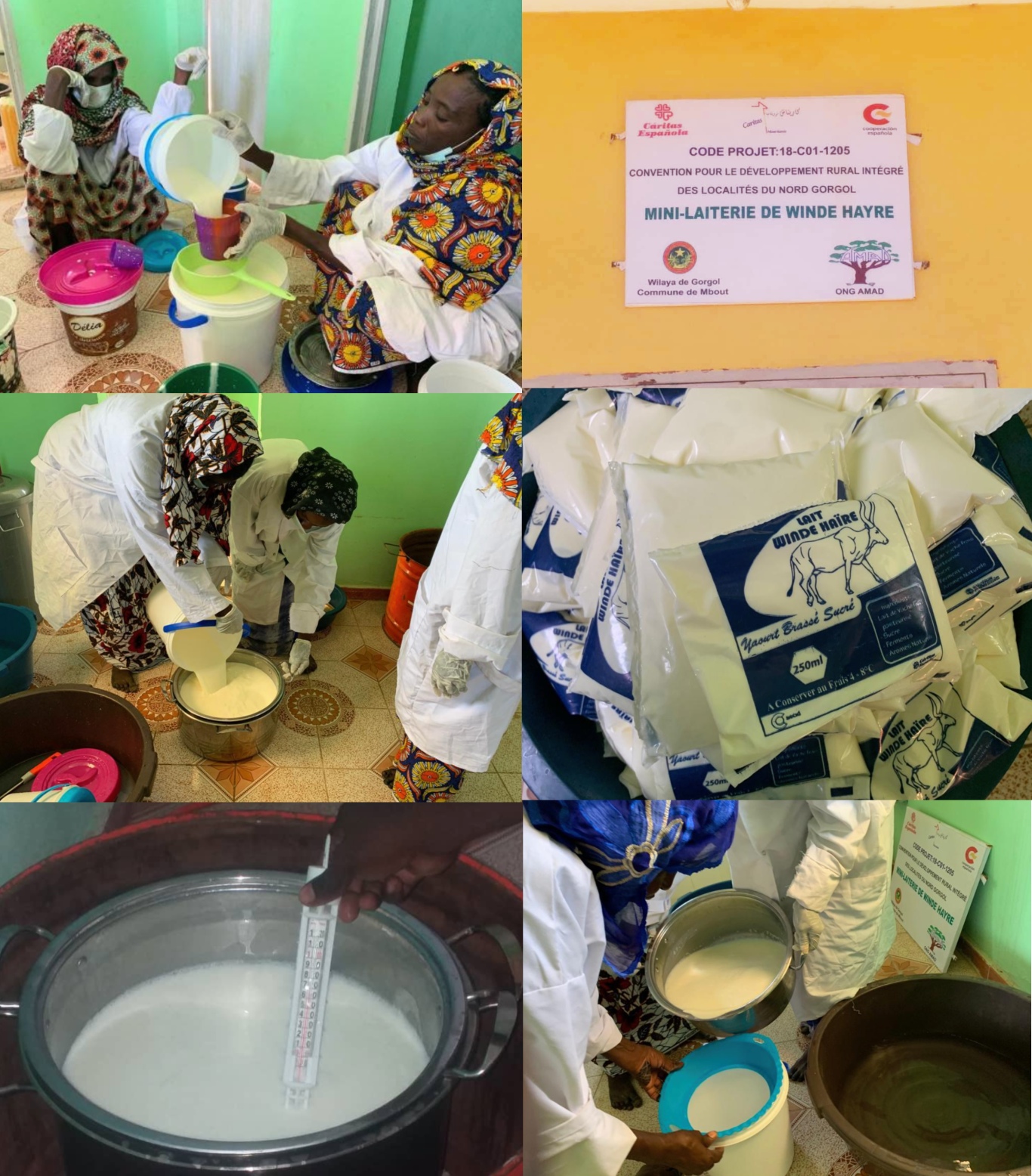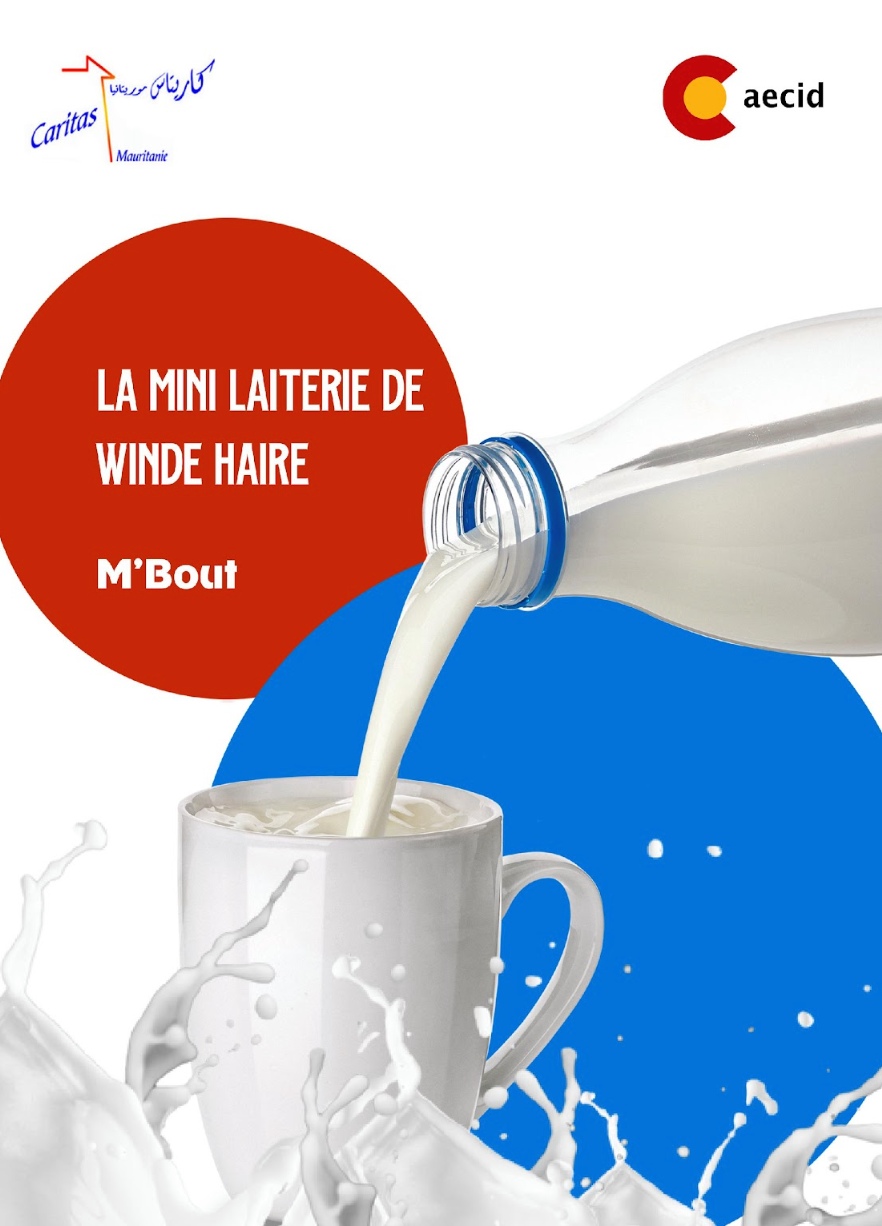THE WINDE HAIRE MINI DAIRY IN MBOUT
In order to promote local economic development, Caritas collaborated with the Association for Self-Development (AMAD) to set up a mini dairy in the village of Winde Haire, located in the commune of Mbout.
The construction of a milk processing unit and the training of a group of 10 women were necessary to successfully install this mini-dairy.
Thanks to the mini dairy, women can compensate for the huge milk losses during the rainy season, while generating additional income.
The daily production is estimated at 150 liters of milk. However, the planned production is 50 liters per day during the dry season and 100 liters per day during the rainy season. The maximum production capacity will be reached in five years thanks to a gradual improvement of this actual production.
The goal is to market the mini dairy's products to 50 local consumers and 1000 consumers in the M'Bout department.
Presentation of raw materials and processed products:
Raw Milk
Raw milk is milk that has undergone no transformation or modification.
Raw milk is a liquid, complete, and very nourishing food, encompassing all the components essential to human and animal nutrition.
Pasteurized Milk
Pasteurizing milk destroys all pathogenic germs and significantly reduces spoilage germs.
Pasteurized milk is a processed product that, although relatively moderate in terms of temperature (90° for 10 minutes), is as close as possible to raw milk in terms of taste and nutritional values. Despite the partial neutralization of spoilage germs, pasteurized milk must be kept cold and for a limited duration (a few days to a few weeks).
Fermented Milk (Curd)
Sweetened or unsweetened curd is produced by the fermentation of milk previously pasteurized with lactic ferment.
This product is traditionally the most popular, and the technique is mastered by women who are dedicated to processing and marketing at the local scale.
The ideal temperatures for obtaining a good curdling are about 30°C, which requires a construction mode adapted in terms of material selection and design. The fermentation lasts between 8 and 12 hours, which requires women to go to the mini dairy at late hours in the night.
This constraint should be considered when selecting sites for the mini dairy's installation. The curdled milk is transported and kept at a low temperature for several weeks.
Yogurt
Yogurt is obtained by curdling milk previously pasteurized, by adding a specific ferment and letting it incubate at a temperature of 45° for four to five hours. Fermentation can be carried out in pots to obtain firm yogurt and in buckets of 10 to 20 liters to be stirred and bagged, thus obtaining a stirred yogurt product.
This product is close to curdled milk, and it differs by a stringy texture and a sweeter, creamier taste.

Marketing:
The president of the cooperative emphasizes that the mini-dairy was the main achievement she knows of for the benefit of cooperatives in the area. "No other NGO has ever done anything similar in the commune of Foum Gleïta," she stated. She provides detailed explanations about the operation of the mini-dairy, from milk supply to sale, including various steps such as testing, measuring, pasteurization, cooling, and freezing.
She gives indications on marketing, specifying that they have been able to adapt to the clientele, offering, for example, a product suited to school students in Foum Gleita at a price of 5 MRU per bag.
She indicates that, despite some difficulties related to supply, especially during the dry season when herders migrate, they manage quite well and are able, after paying all expenses, to make profits that are reinvested in the cooperative's fund, which proceeds to share twice a year.

